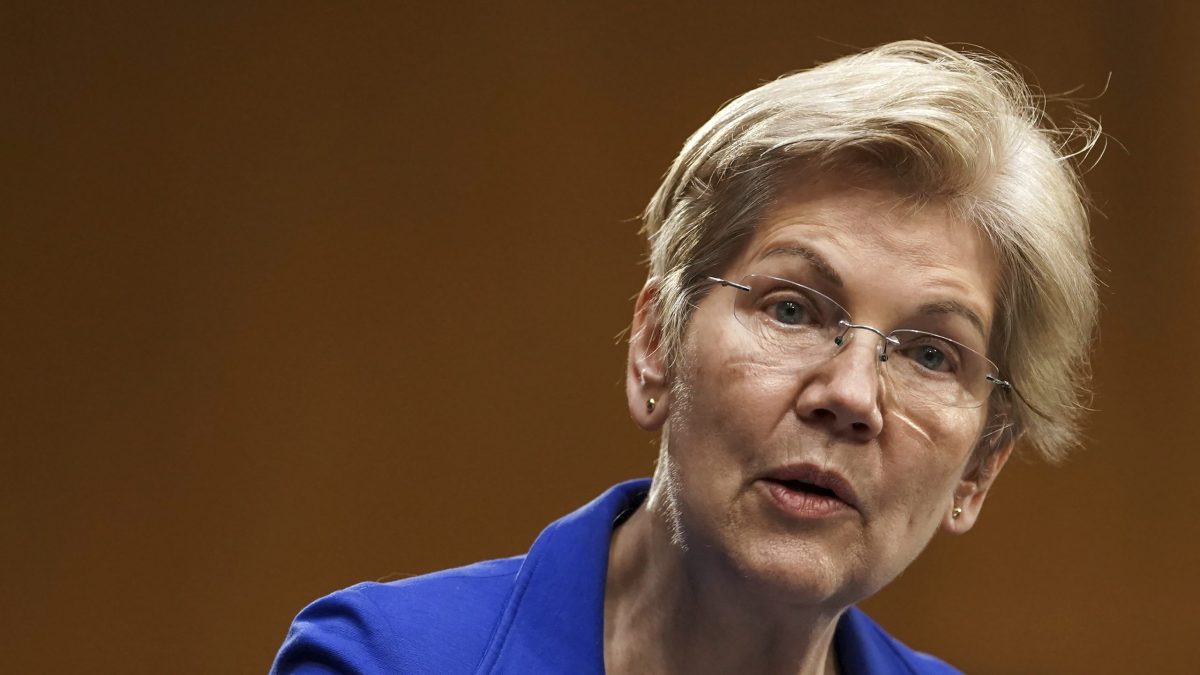Senator Warren Sounds Alarm on Crypto Bill Tied to Trump-Backed Token
06.05.2025 13:00 2 min. read Alexander Stefanov
A controversial stablecoin bill is now facing mounting opposition in Washington, with Senator Elizabeth Warren leading the charge against what she calls a pathway to “crypto corruption.”
The proposed legislation—known as the GENIUS Act—initially gained bipartisan traction but is now rapidly losing support as concerns over national security and regulatory loopholes intensify.
Warren has singled out a high-profile deal involving World Liberty Financial (WLFI), a firm reportedly connected to President Donald Trump, and MGX, a UAE-based company. The deal centers on a dollar-pegged token, USD1, and a massive $2 billion investment allegedly linked to Binance. Since the agreement was announced, USD1 has surged in activity and climbed the ranks to become one of the top stablecoins globally.
Warren warns that this arrangement could enrich political allies while circumventing oversight. She’s urging lawmakers not to greenlight a bill that could, in her words, legitimize shadowy partnerships and weak financial controls.
The backlash appears to be working—ten senators, including former supporters, have now backed away from the GENIUS Act, citing the bill’s vague enforcement provisions and exposure to foreign influence.
In the fallout, WLFI has paused plans to list its stablecoin on major exchanges, citing the need for regulatory clarity. But with political pressure mounting and the bill’s future uncertain, the project may lose momentum in a stablecoin market already dominated by giants like Tether.
A House vote was expected soon, but with Senate support evaporating, the GENIUS Act is now stalled—caught between calls for crypto innovation and fears of political profiteering.
-
1
Here is When the U.S. House Will Vote on Key Crypto Bills
04.07.2025 12:00 2 min. read -
2
U.S. Crypto Investors Hit by IRS Letter Surge as Tax Crackdown Looms
29.06.2025 11:00 3 min. read -
3
Ripple Drops Cross-Appeal, Moves to End SEC Case “Once and for All”
28.06.2025 12:30 2 min. read -
4
Europe’s Largest Euro-Denominated Spot Crypto Exchange Secures License Under MiCA
29.06.2025 12:00 2 min. read -
5
SEC Approves Grayscale ETF Tracking Top Five Cryptocurrencies
02.07.2025 9:06 1 min. read
Senate Confirms Crypto-Linked Nominee Jonathan Gould to Head OCC
The U.S. Senate has confirmed Jonathan Gould as the next head of the Office of the Comptroller of the Currency (OCC), moving his nomination to President Donald Trump for final approval.
Australia Tests CBDCs in 24 Separate Real-World Finance Use Cases
Australia is stepping up its digital currency efforts with the next phase of Project Acacia, a pilot focused on testing central bank digital currency (CBDC) and tokenized finance in real-world applications.
U.S. Treasury Eliminates Crypto Reporting Rule Targeting Decentralized Exchanges
According to Bloomberg the U.S. Treasury Department has officially eliminated a controversial crypto reporting requirement that targeted decentralized exchanges.
U.S. Lawmakers Target El Salvador With Crypto Sanctions Plan
Three Democratic senators—Chris Van Hollen, Tim Kaine, and Alex Padilla—unveiled a bill aiming to penalize El Salvador’s President Nayib Bukele and his allies.
-
1
Here is When the U.S. House Will Vote on Key Crypto Bills
04.07.2025 12:00 2 min. read -
2
U.S. Crypto Investors Hit by IRS Letter Surge as Tax Crackdown Looms
29.06.2025 11:00 3 min. read -
3
Ripple Drops Cross-Appeal, Moves to End SEC Case “Once and for All”
28.06.2025 12:30 2 min. read -
4
Europe’s Largest Euro-Denominated Spot Crypto Exchange Secures License Under MiCA
29.06.2025 12:00 2 min. read -
5
SEC Approves Grayscale ETF Tracking Top Five Cryptocurrencies
02.07.2025 9:06 1 min. read


